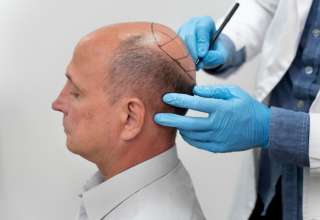Sweetness, along with sourness, saltiness, bitterness, and a peculiar flavor called ‘umami’ are the five tastes that the taste buds on our tongue can distinguish. Usually, your mouth will taste sweet after you eat anything containing sugar, such as ice cream and soda, or anything with a natural sweetener, such as honey or fruits.
However, there are several medical conditions that can lead a person to experience a constant sweet taste on the tongue, even when they have not had anything sweet to eat or drink.
What are the causes of sweet taste on tongue?
Research is currently underway to determine the exact cause which leads to someone experiencing a constant sweet taste on tongue. Although this is definitely an unusual medical condition, there are several factors that are suspected to be the cause behind the permanent sweet taste on tongue.
Some of the apparent causes that lead to a constantly sweet taste on tongue are:
Metabolic disorders
There are several metabolic problems, such as thyroid disorder, diabetes, and ketosis, among others that can affect the sense of taste. This can often result in the formation of the sweet taste permanently in the background and an urge to eat extremely sweet foods.
Neurological issues
An inexplicable sweet taste on tongue can often be an early symptom of several neurological diseases, including epilepsy, seizures, and strokes, among others.
Viral attacks
There are several viruses that are known to affect the olfactory system (responsible for taste and smell) and can result in a permanently sweet taste on tongue.
ENT infections
Often, certain bacteria, such as pseudomonas, can cause infection in the throat, nose, or sinus and result in a permanent sweet taste on tongue.
Gastro-Esophageal Reflux Disease (GERD)
GERD causes the acid in the stomach to rise to the throat and mouth, thus resulting in an abnormally sweet taste on tongue.
Pregnancy
Often, pregnant women get a peculiarly sweet taste in their mouths, especially during the first few months of the pregnancy.
These factors are suspected to affect the nervous or sensory system and cause undue and unexplained sweet taste on tongue for many people. The sensory system is incredibly complex and is affected variably by different hormones. When these factors affect hormone production in the body, it leads to a strange, permanently sweet mouth.
When should I see a doctor for a sweet taste on tongue?
If you experience an unexplained sweet taste on the tongue infrequently, then you probably have nothing to worry about as the condition will pass away on its own. However, if you experience a permanently sweet taste in mouth, then it is highly advised to consult your local physician. As the problem mostly arises due to a malfunctioning olfactory system, the physician may refer you to an ENT specialist. If a problem with the hormones (endocrinal problem) is detected as the cause, then you may be referred to an endocrinologist and if the problem seems to be caused due to a dysfunctional nervous system, then you may be referred to a neurologist.
How is the sweet taste on tongue condition diagnosed?
When you go to see the doctor for a permanent sweet taste on tongue, they will most probably start with your medical history and perform a complete physical examination. They may also enquire about your family’s medical history to determine the cause of the condition.
Apart from this, there are several diagnostic tests that help to pinpoint the cause of the condition. The doctor may advise you of one or more of the diagnostic tests listed below:
- Blood tests – To check blood sugar and hormone levels, as well as for checking viral or bacterial infections.
- Brain imaging scans – To check for any abnormality in the neurological activity that may point to possible nerve damage.
- CT / MRI Scans – To check the lungs for signs of cancer.
Is there a way to prevent a sweet taste on tongue?
Yes, staying fit and eating a healthy diet which includes fresh fruits, green leafy vegetables, and lean proteins and avoiding sugar as much as possible, is a good way to prevent the sweet taste on tongue, on the condition that it is not caused by any underlying medical disorder.














